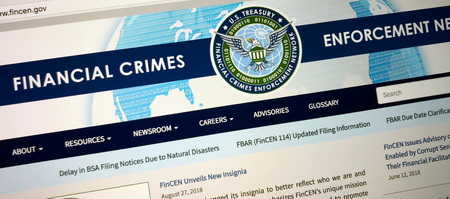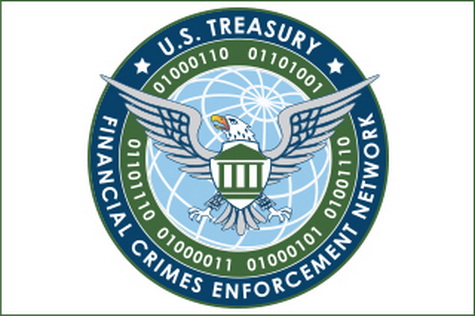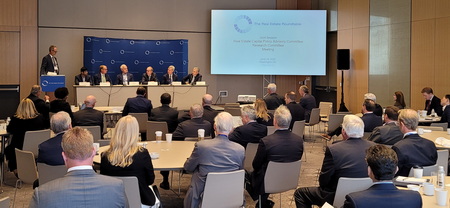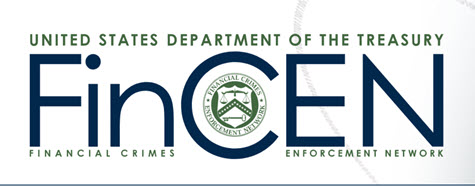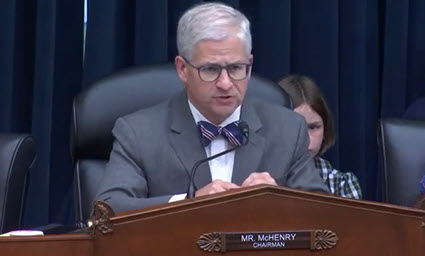
The Roundtable and a broad coalition representing millions of businesses throughout the country wrote to House Financial Services Committee Chairman Patrick McHenry (R-NC), above, this week in strong support of his legislation—the Protecting Small Business Information Act of 2023 (H.R. 4035). McHenry’s bill would delay the date when the Corporate Transparency Act’s (CTA) beneficial ownership reporting requirements go into effect, currently scheduled for Jan. 1, 2024. (Coalition letter, Sept 12 and McHenry news release, June 12)
CRE Impact
- There is significant concern about the CTA’s far-reaching scope and its impact on many commercial residential real estate businesses that use the LLC structure for conducting business. The coalition’s letter states that Chairman McHenry’s bill “legislation offers a commonsense solution to this pending regulatory trainwreck.”
- The CTA amended the Bank Secrecy Act to require corporations, limited liability companies, and similar entities to report certain information about “beneficial owners” who own at least 25% of an entity or indirectly exercise “substantial control” over it.
- The CTA authorizes the Treasury’s Financial Crimes Enforcement Network (FinCEN) to collect and disclose beneficial ownership information to authorized government authorities and financial institutions, subject to effective safeguards and controls. The statute requires the submission of regular reports to the federal government that include a litany of sensitive personal identifiers of the owners, senior employees, and/or advisors of covered entities.
CTA Rule Burdens
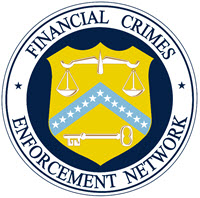
- The coalition notes that the rule will cover over 32 million existing entities and an additional 5 million newly-created entities every year. These companies and other legal entities could be subjected to increased paperwork, privacy risks, and potentially devastating fines and prison terms.
- The CTA also applies only to businesses with under $5 million in annual revenues and fewer than 20 employees, thus ensuring that the very companies who can least afford the costs associated with compliance are the ones targeted.
- Additionally, the coalition emphasizes that despite a looming effective date of January 1, 2023, FinCEN regulators have not finalized the “Access Rule,” which specifies who can access the database and for what purposes, nor an updated “Customer Due Diligence Rule” that applies to financial institutions. Regulators have not laid out a clear plan for engaging millions of affected businesses to convey upcoming responsibilities.
- In April, bipartisan groups of House and Senate policymakers urged FinCEN to amend the proposed beneficial ownership reporting and access rules, contending certain provisions do not follow congressional intent. (Reuters, April 5)
- Rep. McHenry, Sen. Sheldon Whitehouse (D-RI), and a bipartisan, bicameral group of congressional lawmakers requested that FinCEN amend the proposed beneficial ownership rule to adhere to congressional intent and ensure reporting companies cannot avoid transparency. (Congressional letter, April 3)
The Roundtable is also part of a broad coalition of business trade groups that supports a National Small Business Association legal challenge (NSBA v. Janet Yellen) on the constitutionality of the Corporate Transparency Act (CTA), which became law in Jan. 2021. (Coalition statement of support, Dec. 7, 2022 and NSBA’s website on the CTA)

